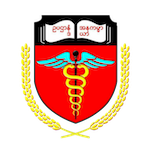The students acquire knowledge of the pathological basis and clinicopathological correlation of diseases through studying gross specimens, histopathological slides, haematological slides, autopsy findings and laboratory results.
Systemic Pathology covers diseases of body systems such as the respiratory, cardiovascular, gastrointestinal, hepatobiliary, urogenital, lymphoreticular, and the central nervous system, and also on diseases of breast, thyroid, bone and joints. Solving clinical problems is discussed as each system is completed. Haematology covers disorders of red cell and white cells, haemorrhagic and myeloproliferative disorders, blood groups and transfusion.
Tutorials, practical demonstrations of slides and morbid specimens support the lectures. Post-mortem teaching on autopsy findings are carried out by senior staff with rotating student groups at the major teaching hospitals.
The course is generally categorized into concept of health & social medicine, disease control, health management and administration, environmental health, general epidemiology and health and vital statistics. They are imparted by means of lectures, tutorials, urban field visits and rural residential training.
During the one and half-month posting, the students visit the various departments, organizations and factories to acquire practical experiences, family health care visits to the selected suburban communities and hospital based clinico-social case-taking are also conducted during the posting period.
A 21 days residential rural field training is conducted to impart community based experiences to the students.
Evaluation is based upon students’ performance during the course as well as in the final examination. Class work constitutes family health care, clinico-social cases presentation & discussion, posting completion test, class assignments, class test and residential field training programme. Final examination consists of a theorypaper and an oral examination.
In handling of police cases by primary basic doctors, it is necessary to consider only matters which could be carried out without much laboratory aid and special equipment and at the same time satisfy the courts of Myanmar with correct opinions in most types of frequent and common cases.
Emphasis is therefore laid on what line of nvestigation and examination are necessary in the light of the requirement of the Myanmar Penal Code and other laws in the Myanmar Code pertaining to age, rape, murder and the management and personal identification of the victims of mass disasters in question; therefore only the essentials of investigation, keen observation, and certain useful scientific data are taught.
Nullam quis risus eget urna mollis ornare vel eu leo. Nullam id dolor id nibh ultricies vehicula ut id elit. Donec ullamcorper nulla non metus auctor fringilla. Maecenas sed diam eget.
